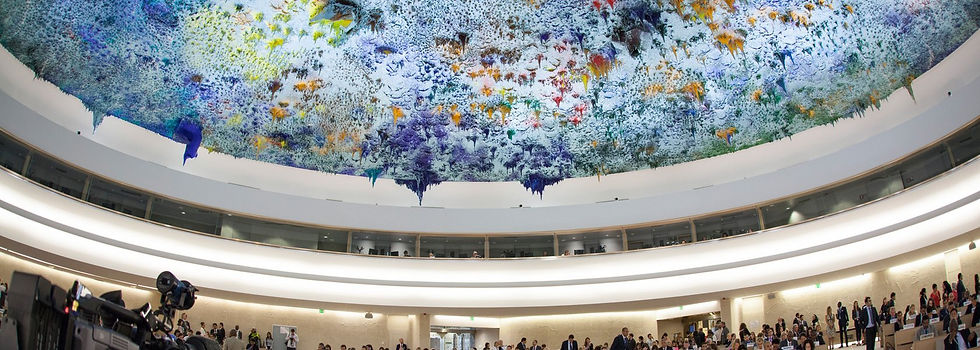Afghanistan a disappointing resolution of the Human Rights Council
- GRA
- Aug 26, 2021
- 2 min read

(Paris) The Resolution adopted today by the United Nations (UN) Human Rights Council (HRC) during its Special Session on Afghanistan fails to adequately address the severity of the human rights crisis in Afghanistan and to promote accountability for human rights violations committed in the country, FIDH said. The Resolution, drafted by Pakistan on behalf of the Organization of Islamic Cooperation, was adopted without a vote.
“The Special Session provided a timely and important opportunity to set up an early warning system to tackle the worsening situation in Afghanistan, but regrettably the mountain labored and brought forth a mouse. Going forward, the UN Human Rights Council must do right by the Afghan people by establishing an independent investigative mechanism that ensures human rights violations in Afghanistan are documented and their perpetrators held to account."
Guissou Jahangiri, FIDH Vice President
Numerous cases of human rights violations have been reported from around the country in the weeks following the Taliban’s takeover, including the violent repression of peaceful protests, house-to-house searches for members of civil society and civil servants, targeted killings, disappearances, and restrictions on women and girls’ freedom of movement, work and education, amid a climate of general fear and violence. Given the Taliban’s abysmal human rights record and the precarious situation in the country, human rights defenders (HRDs), journalists, and members of civil society – including women and children – are particularly vulnerable and at risk.
FIDH calls on the members of the HRC to heed the calls of civil society to establish a gender-sensitive independent investigative mechanism to collect and preserve evidence of violations of international human rights and humanitarian law committed since the beginning of 2020, with a view to advancing accountability. Although today’s Special Session was a missed opportunity, the HRC must now look to the upcoming September session to produce a more adequate response to the crisis.
FIDH reiterates its call on the international community to ensure that the country’s de facto government ensure the protection of civilians, including HRDs, respect human rights, including women’s and children’s rights, restore constitutional order, and establish a clear timeline towards free, fair, inclusive, and participatory elections that reflect the will of the Afghan people.




Comments